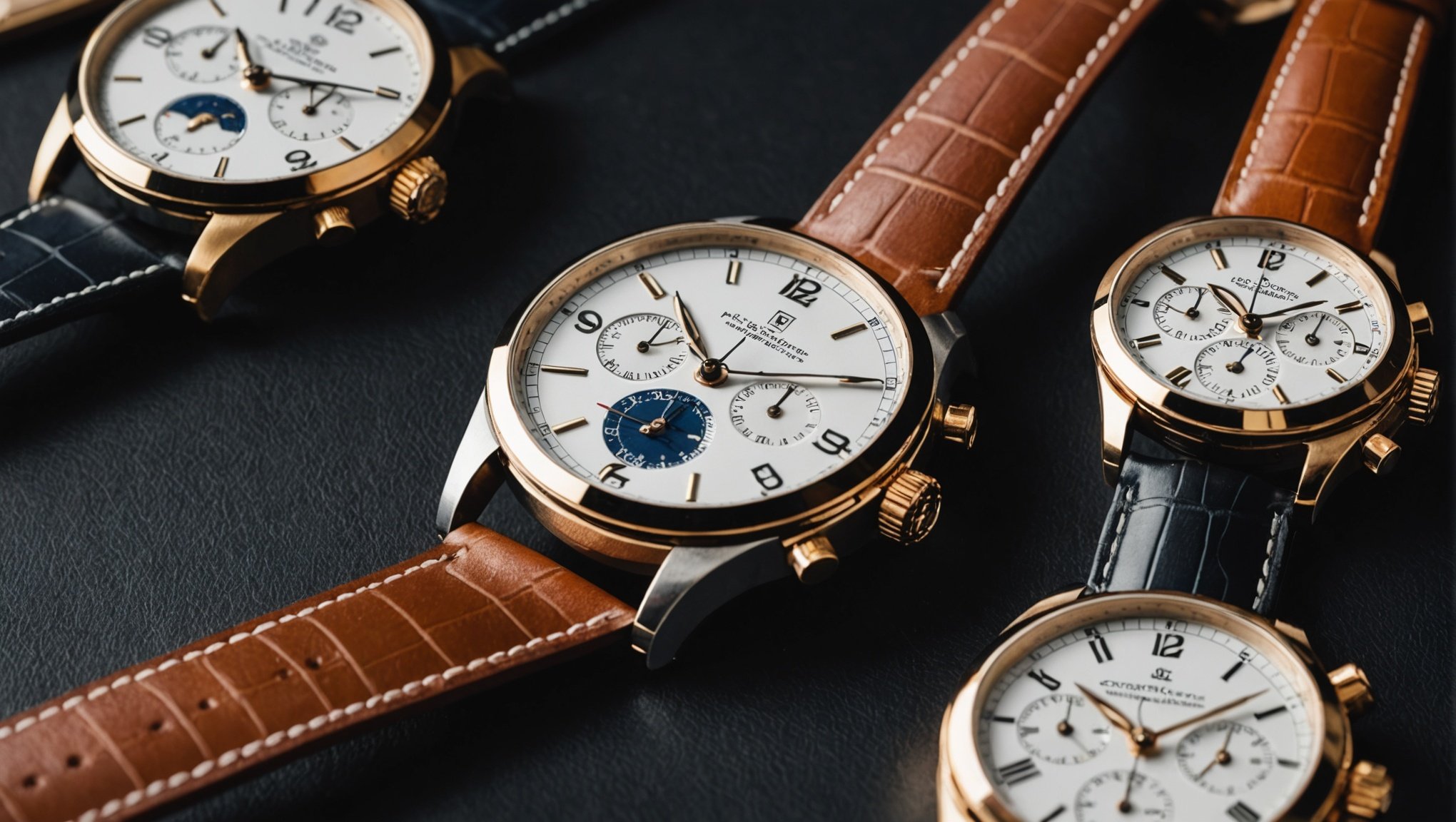Mastering UK Import Regulations: A Comprehensive Guide for Luxury Watch Retailers
Understanding the Landscape of UK Import Regulations
When it comes to importing luxury watches into the UK, the regulatory landscape can be complex and daunting. For retailers, navigating these regulations is crucial to ensure compliance, avoid penalties, and maintain the integrity of their business. Here, we will delve into the key aspects of UK import regulations, providing a comprehensive guide to help luxury watch retailers succeed.
The Basics of Import Regulations
Import regulations in the UK are governed by a combination of national and international laws. Post-Brexit, the UK has established its own set of rules, although many still align with EU regulations. Here are some basic points to consider:
Also to discover : Creating a Compliant UK Virtual Fitness Program: Your Ultimate Guide to Health and Safety Standards
- Customs Declarations: All imported goods, including luxury watches, must be declared to HM Revenue & Customs (HMRC). This involves submitting detailed information about the goods, including their value, origin, and classification.
- Tariffs and Duties: Depending on the country of origin and the type of watch, tariffs and duties may apply. For example, watches imported from non-EU countries may be subject to customs duties, while those from EU countries might be duty-free under certain conditions.
- VAT and Excise Duties: Value Added Tax (VAT) and excise duties can also be applicable. Luxury watches are typically subject to the standard VAT rate of 20% in the UK.
Compliance with Specific Regulations
Compliance is key to avoiding fines and ensuring smooth operations. Here are some specific regulations luxury watch retailers need to be aware of:
Product Safety and Standards
Luxury watches must comply with UK product safety standards. This includes adhering to regulations related to materials, such as the use of nickel and lead, and ensuring that the watches meet safety standards for consumers.
Also read : Creating a Compliant UK Virtual Fitness Program: Your Ultimate Guide to Health and Safety Standards
- CE Marking: Although the UK has its own UKCA marking, products that were CE marked before Brexit can still be sold in the UK until 2025. However, new products must comply with UKCA marking requirements.
- Battery and Electrical Safety: Watches with batteries or electrical components must meet specific safety standards to protect consumers.
Intellectual Property and Counterfeiting
Intellectual property protection is a critical aspect of the watch industry. Retailers must ensure that the watches they import are genuine and not counterfeit.
- Trademark and Copyright Laws: Luxury watch brands like Rolex, Patek Philippe, and Audemars Piguet have stringent trademark and copyright protections. Importing counterfeit goods can lead to severe legal consequences.
- Serial Number Verification: Verifying the serial number of each watch is essential to ensure authenticity. This can be done through the brand’s official channels or by using specialized services.
Practical Steps for Compliance
To ensure compliance, luxury watch retailers can follow these practical steps:
Conduct Thorough Research
Before importing any watches, conduct thorough research on the regulations applicable to your specific products.
- Consult Official Resources: Use official resources such as the HMRC website and the UK Government’s guidance on importing goods.
- Seek Professional Advice: Consult with customs brokers, lawyers, or industry experts who specialize in import regulations.
Maintain Detailed Records
Keeping detailed records is crucial for compliance and for resolving any potential issues.
- Customs Declarations: Keep copies of all customs declarations and supporting documents.
- Invoice and Packing Lists: Ensure that invoices and packing lists are accurate and detailed.
- Serial Number Records: Maintain records of the serial numbers of all watches imported to verify authenticity.
Build Strong Relationships with Suppliers
Building strong relationships with suppliers can help ensure that the watches you import are compliant with UK regulations.
- Supplier Due Diligence: Conduct due diligence on your suppliers to ensure they are reputable and compliant with all relevant regulations.
- Regular Audits: Regularly audit your suppliers to ensure ongoing compliance.
Marketing and Brand Value in the Context of Import Regulations
Marketing and maintaining brand value are critical for luxury watch retailers, but these efforts must be balanced with compliance with import regulations.
Clear Communication of Value
Clearly communicating the value of the watches you import is essential for maintaining brand integrity.
- Highlight Unique Qualities: As Akio Naito, President of Seiko Watch Corporation, emphasized, clearly communicating the unique qualities and stories behind each watch is crucial. For example, highlighting the Japanese ideals and natural inspirations behind Grand Seiko watches can enhance their value.
- Transparency in Marketing: Ensure that marketing materials are transparent about the origin, materials, and compliance of the watches.
Avoiding Over-Saturation
Avoiding over-saturation in the market is also important for maintaining brand value.
- Focused Collections: Grand Seiko’s decision to pare back their collections and focus on core SKUs is a good example. This helps in maintaining a clear brand identity and avoiding consumer fatigue.
Comparing UK Regulations with International Standards
Understanding how UK regulations compare to international standards can help retailers navigate global markets more effectively.
EU vs. UK Regulations
Post-Brexit, the UK has its own set of regulations, but there are still many similarities with EU regulations.
| Aspect | EU Regulations | UK Regulations |
|---|---|---|
| Customs Declarations | Must be declared to customs authorities | Must be declared to HMRC |
| Tariffs and Duties | Vary by country of origin and type of goods | Vary by country of origin and type of goods |
| VAT and Excise Duties | Standard VAT rate of 20% | Standard VAT rate of 20% |
| Product Safety | Must comply with CE marking and EU safety standards | Must comply with UKCA marking and UK safety standards |
| Intellectual Property | Protected by EU trademark and copyright laws | Protected by UK trademark and copyright laws |
US and Other Markets
Regulations in other markets, such as the US, can differ significantly.
- US Customs Regulations: In the US, customs regulations are governed by the U.S. Customs and Border Protection (CBP). There are specific requirements for declaring goods, paying duties, and complying with safety standards.
- Chinese Market: In China, there are strict regulations regarding the import of luxury goods, including watches. Retailers must comply with local laws and regulations, including those related to taxation and intellectual property.
Case Studies and Examples
Looking at real-world examples can provide valuable insights into navigating UK import regulations.
Grand Seiko’s Approach
Grand Seiko’s approach to managing their collections and pricing is a good example of how to balance compliance with marketing and brand value.
- Focused Collections: By paring back their collections and focusing on core SKUs, Grand Seiko has maintained a clear brand identity and avoided consumer fatigue.
- Pricing Strategy: Grand Seiko’s pricing strategy involves being selective about materials and finishing to provide value to consumers while managing cost increases.
Atelier Wen’s Innovative Approach
Atelier Wen, a Chinese luxury watch brand, is another example of how innovation and compliance can go hand-in-hand.
- Cultural Heritage: Atelier Wen’s focus on elevating Chinese culture and heritage through their watches is a great example of how to communicate unique value. Their use of traditional techniques like guilloché dial making adds to the brand’s authenticity.
- Compliance with International Standards: Atelier Wen ensures that their watches comply with international safety and quality standards, making them competitive in global markets.
Mastering UK import regulations is a complex but essential task for luxury watch retailers. By understanding the regulatory landscape, ensuring compliance, and maintaining strong relationships with suppliers, retailers can navigate these regulations effectively. Here are some key takeaways:
- Conduct Thorough Research: Always research the regulations applicable to your products.
- Maintain Detailed Records: Keep accurate and detailed records of all imports.
- Build Strong Relationships: Ensure your suppliers are compliant and reputable.
- Clear Communication of Value: Clearly communicate the unique qualities and value of your watches.
- Avoid Over-Saturation: Focus on core collections to maintain brand integrity.
By following these guidelines and staying informed about the latest regulations, luxury watch retailers can ensure compliance, protect their brand value, and thrive in the competitive watch industry.
Additional Resources
For further reading and to stay updated on the latest regulations:
- HMRC Website: The official HMRC website provides detailed guidance on importing goods into the UK.
- UK Government Guidance: The UK Government’s website offers comprehensive guides on customs regulations and product safety standards.
- Industry Publications: Publications like Chrono Hunter and MrWatchMaster provide insights into the watch industry and regulatory changes.
By staying informed and proactive, luxury watch retailers can master the complexities of UK import regulations and continue to offer high-quality, compliant products to their customers.













